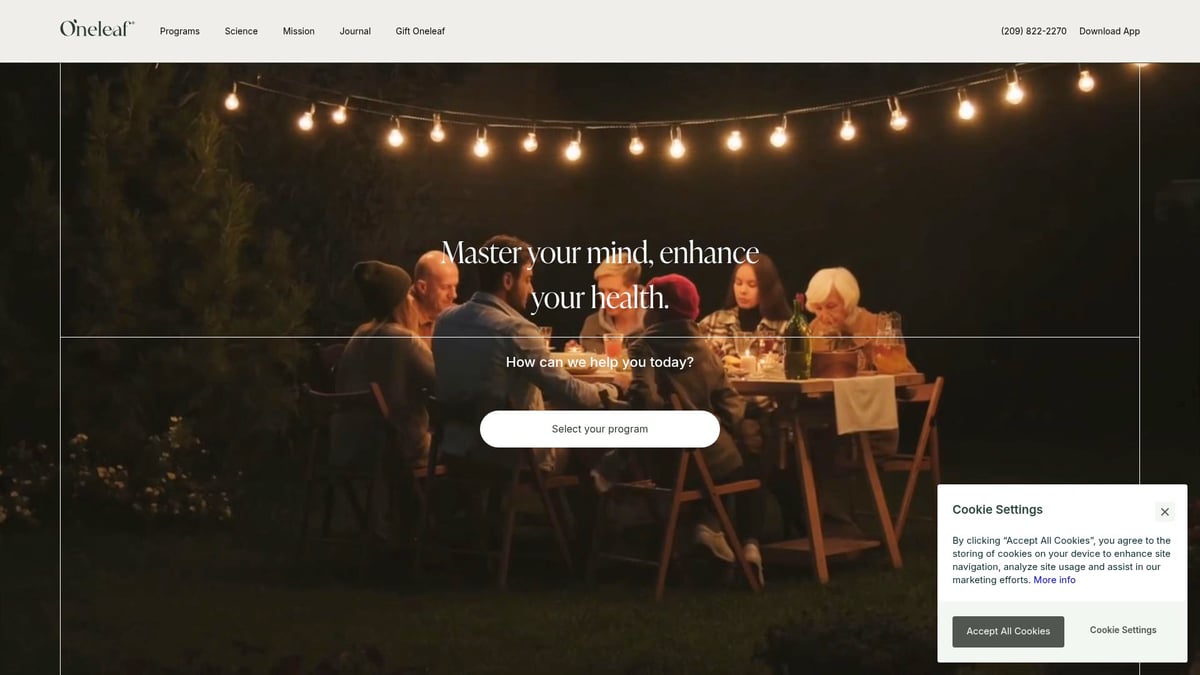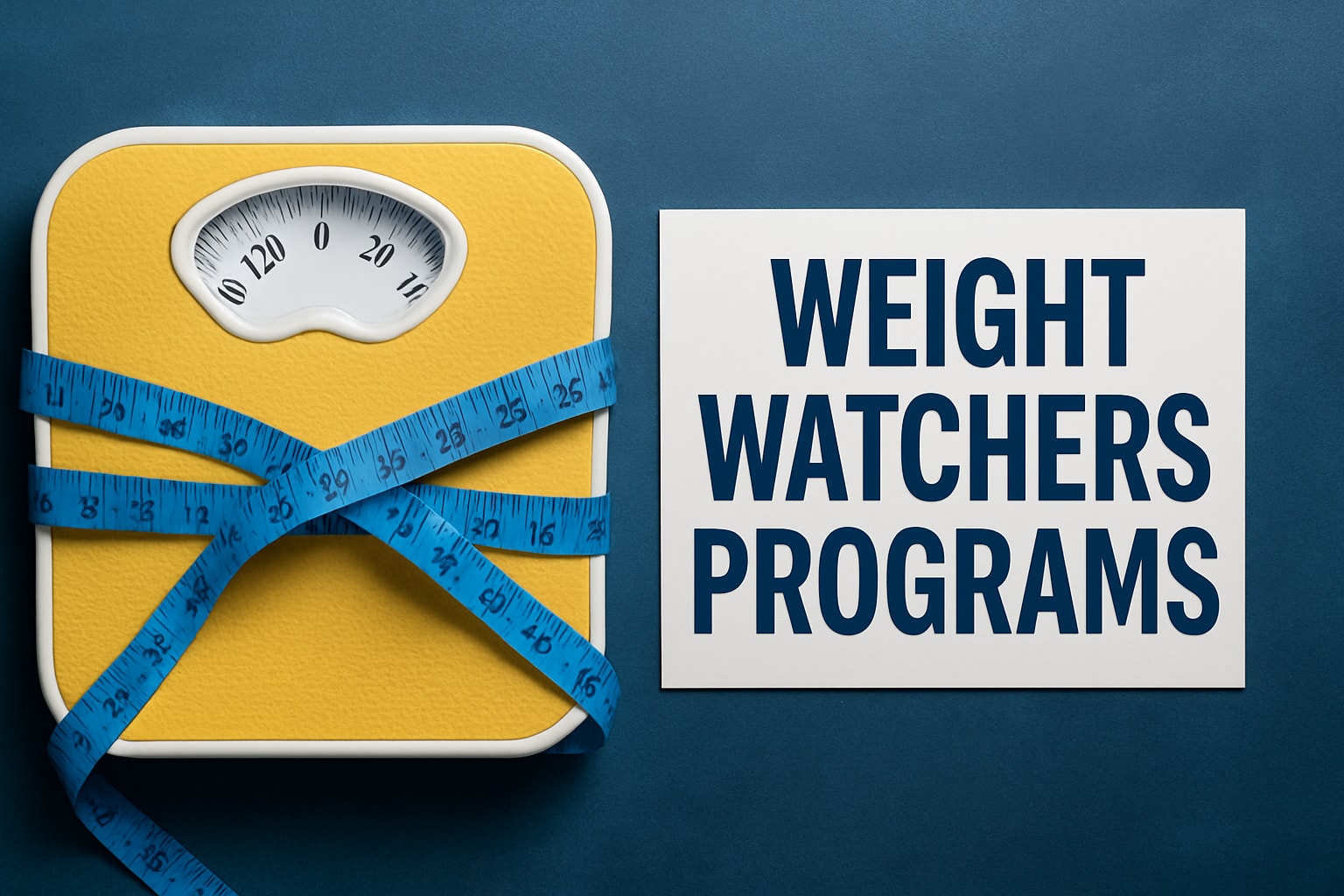The world of weight loss clinics is rapidly changing as 2025 brings a surge in demand for reliable, sustainable solutions. With so many choices available, finding a science-backed weight loss clinic that truly supports long-term results can feel overwhelming.
Many individuals face uncertainty when it comes to choosing a clinic that offers expert care, innovative technology, and proven success. This guide is designed to simplify the process, offering clear steps, insider advice, and the latest trends to help you make confident decisions.
In the following sections, you will discover:
This comprehensive guide is your roadmap to navigating weight loss clinics in 2025, empowering you to achieve meaningful, lasting change.
Understanding Weight Loss Clinics in 2025
The landscape of the weight loss clinic is transforming rapidly in 2025, reflecting new demands for personalization, technology, and evidence-based care. Gone are the days when a weight loss clinic offered only generic diets or isolated counseling sessions. Today, these clinics are at the forefront of science, blending medical expertise, behavioral support, and digital innovation to help clients achieve lasting change.

The Evolving Role of Clinics in Modern Weight Management
Historically, a weight loss clinic focused mainly on calorie restriction or meal replacements. In 2025, modern clinics embrace a holistic approach, assembling multidisciplinary teams that include physicians, registered dietitians, and behavioral therapists. This shift recognizes that sustainable weight management goes beyond diet and exercise, addressing the physical, psychological, and social aspects of health.
The integration of telehealth is now standard, enabling clinics like FormHealth, 9amHealth, and knownwell to offer a seamless blend of in-person and virtual care. Clients can access expert support from anywhere, using secure apps and remote monitoring. Personalization is another hallmark, with programs tailored through genetics, data analysis, and behavioral profiling, ensuring each person’s plan aligns with their unique needs.
Board-certified obesity medicine specialists (ABOM) are increasingly central to the weight loss clinic experience. These experts coordinate with primary care providers, ensuring medical safety and comprehensive support. For more on the science behind these advancements, see the Safest and Most Effective Weight Loss in 2025.
Explore more about how clinics are using neuroscience and behavioral science in this article on mindful eating. For self-assessment tools and personalized tracking, visit Oneleaf's resources.

Types of Weight Loss Clinics Available
Choosing the right weight loss clinic starts with understanding the available models. Here’s a quick overview:
Insurance and self-pay options are more transparent in 2025, making weight loss clinic services accessible for many. For tips on evaluating programs, see 8 Essential Tips to Choose the Right Weight Loss Program.
Many clinics now support digital engagement, offering access to meal planning resources, exercise videos, and mental health support through dedicated apps. To compare clinic models and find the best fit, use the clinic comparison checklist at Oneleaf.
What Sets Leading Clinics Apart
The most effective weight loss clinic stands out through its commitment to science, technology, and ongoing support. Top clinics employ certified specialists, such as CSOWM dietitians, ensuring clients receive expert guidance grounded in the latest evidence.
Evidence-based protocols are the norm, with regular measurement of progress and outcome tracking. Technology is seamlessly woven into the experience, providing easy scheduling, secure communication, and on-demand resources. Leading clinics, like Knownwell, offer both virtual and in-person visits, building lasting relationships with clients for long-term success.
Ongoing support is a defining feature, from regular follow-ups to community resources and motivational tools. For more on building your support system, read How to Build Lasting Motivation for Weight Loss.
Discover additional tracking and progress resources at Oneleaf's platform, and explore the latest trends in How Technology is Revolutionizing Weight Loss as well as Guide to Achieving Weight Loss Goals.
The Step-by-Step Process: Your Weight Loss Clinic Journey
Embarking on a weight loss clinic journey in 2025 is an empowering decision. With new technology, personalized care, and science-backed resources, clients can achieve lasting results. Let us walk through each essential step, ensuring you make the most informed and confident choices along your path to better health.

Step 1: Assessing Your Needs and Readiness
The first step in any weight loss clinic experience is honest self-assessment. Ask yourself: What are my health goals? What lifestyle factors influence my weight? Review your medical history, including any chronic conditions or medications.
It is crucial to set realistic, sustainable objectives. Many clinics use readiness questionnaires to help you gauge your commitment and expectations. If you are unsure whether a weight loss clinic is right for you, consider using a self-assessment tool to clarify your needs.
In some cases, medical intervention is necessary, especially if self-guided efforts have not worked. For more on building motivation, visit How to Build Lasting Motivation for Weight Loss.
Step 2: Researching and Comparing Clinics
With your goals in mind, research different weight loss clinic options. Look for clinics with board-certified specialists, strong client outcomes, and transparent practices. Compare services: do they offer in-person, telehealth, or hybrid models? Is there support for your language or cultural needs?
Check whether clinics accept your insurance or offer flexible payment options. Read verified reviews and seek clinics that offer customized programs. Some, like those featured in Obesity Care Innovations at UC Davis Health, blend medical, nutritional, and behavioral support for optimal outcomes.
Explore meal planning and tracking resources, such as those found at Oneleaf's tracking platform, to support your clinic journey.
Step 3: The Initial Consultation
Your first appointment at a weight loss clinic typically involves a comprehensive health assessment. Expect a review of your medical history, lifestyle, and weight-related challenges. Many clinics now offer at-home lab testing, making the process more convenient.
Use this opportunity to ask key questions: What experience do the providers have? What are the clinic’s follow-up protocols? What medication options are available, and are they right for you?
For additional preparation, check out The Science Behind Mindful Eating and access consultation checklists to ensure you cover important topics during your visit.
Step 4: Personalized Program Design
A top-tier weight loss clinic will tailor your program using a multidisciplinary team, including physicians, dietitians, and behavioral therapists. Your plan should include nutrition, exercise, behavioral strategies, and, if appropriate, medication.
Clinics using digital tools will enable easy progress tracking and communication. For examples of innovative care, see How Technology is Revolutionizing Weight Loss. Multidisciplinary approaches, like those described in Obesity Care Innovations at UC Davis Health, set new standards for patient-centered care.
You can also access customized program builders for ongoing support and education.
Step 5: Ongoing Support and Progress Tracking
Consistency and accountability are essential for lasting results. Leading weight loss clinic programs provide regular follow-ups, progress reviews, and barrier troubleshooting. Many offer app-based messaging, meal planning, and exercise resources.
Utilize progress tracking tools to monitor your achievements and make necessary adjustments. For more strategies, read 5 Ways to Accelerate Weight Loss by Boosting Metabolism.
Remember, your journey is unique. Leverage all available resources, including community forums and expert articles, to stay motivated and on track.
Neuroscience and Behavioral Change: The Missing Link in Weight Loss Success
Understanding the science behind successful weight management is crucial for anyone considering a weight loss clinic in 2025. While traditional approaches focused on diet and exercise, new research highlights the brain's central role in shaping habits, motivation, and long-term results. Let's explore how neuroscience and behavioral change strategies are transforming the landscape of weight loss clinic programs, making sustainable change more achievable than ever.
How the Brain Influences Weight Loss Outcomes
The human brain is the command center for every choice we make, from food selection to movement and emotional responses. In a weight loss clinic, understanding subconscious habits and emotional triggers is just as important as tracking calories. Many people struggle with cravings, stress eating, and self-sabotage, all of which are rooted in neural pathways developed over years.
Recent advances in neuroscience reveal that lasting change requires addressing these deep-seated patterns. Techniques such as cognitive behavioral therapy (CBT), mindfulness, and even self-hypnosis have shown promise in rewiring the brain’s response to food and stress. For those exploring a weight loss clinic, programs that incorporate behavioral and psychological support can offer a distinct advantage. According to Recent Trends in Obesity Management, integrated approaches combining lifestyle changes and psychological interventions deliver better long-term results than diet alone.
Mindset is another key factor. Clients who focus on their mental health and develop coping strategies for setbacks tend to maintain their progress. Many clinics now provide resources for emotional resilience, including group support and mental health referrals. For more insights on the science behind weight-related habits, read The Science Behind Mindful Eating and explore self-assessment tools at Oneleaf’s weight loss platform.
Integrating Neuroscience-Based Tools in Your Clinic Journey
A modern weight loss clinic goes beyond physical assessments by integrating neuroscience-based tools into the client journey. Behavioral therapy and CBT are increasingly offered alongside nutritional and medical support. These therapies help clients identify and break unhelpful patterns, replacing them with healthier habits that stick.
Clinics with dietitians trained in motivational interviewing and CBT can personalize care even further. This multidisciplinary approach ensures that every aspect of a client’s health—body and mind—is addressed. Many clinics also use technology to enhance behavioral support, providing app-based messaging, progress tracking, and resource libraries for ongoing guidance.
For example, some clinics offer virtual workshops on stress management, while others connect clients to peer support groups that foster accountability. To maximize your clinic experience, consider programs that emphasize behavioral change as a cornerstone of their methodology. For practical strategies, see How to Build Lasting Motivation for Weight Loss and access digital tracking resources at Oneleaf’s weight loss program.
How Oneleaf Empowers Sustainable Weight Loss
Oneleaf stands out as a leader in bridging neuroscience with weight loss clinic programs. Their app delivers daily 10-minute audio sessions that blend self-hypnosis, behavioral psychology, and evidence-based neuroscience. By guiding users through mindful eating exercises, stress reduction techniques, and motivational mindset shifts, Oneleaf helps rewire the brain for lasting change.

Clients report reduced cravings, improved willpower, and a healthier relationship with food—all without restrictive diets. The app fits seamlessly alongside clinic-based programs, offering extra support between appointments and personalized feedback. For those seeking a holistic path, Oneleaf complements clinic care with tools for habit formation, emotional resilience, and self-reflection.
Explore Oneleaf’s weight loss program for practical resources, and dive deeper into related topics with How to Rewire Your Brain for Weight Loss and How Technology is Revolutionizing Weight Loss. For more support, visit Oneleaf’s digital resource library.
Key Success Factors: What to Look for in a Weight Loss Clinic
Choosing the right weight loss clinic in 2025 is pivotal for your long-term health journey. With so many options, knowing what truly sets top clinics apart makes all the difference. Here, we break down the essential features, red flags, and real-world data to guide your decision.

Essential Elements of Effective Clinics
A reputable weight loss clinic prioritizes a multidisciplinary care model. This means your care team may include physicians, registered dietitians, behavioral therapists, and support staff, all collaborating for a holistic approach. Individualized plans are a must, adapting to your health history, lifestyle, and goals. Clinics with board-certified specialists, such as Certified Specialists in Obesity and Weight Management (CSOWM), ensure you receive science-backed care.
Technology integration is now standard. Look for clinics offering apps for easy communication, appointment scheduling, and resource access. Many leading clinics, including those highlighted in How Technology is Revolutionizing Weight Loss, provide virtual care and digital tools for tracking meals, exercise, and progress. For examples of effective tracking resources, visit this page.
Transparent pricing and insurance coverage are also key. The best weight loss clinic will clearly outline costs, accepted insurers, and payment options. Explore more about effective clinic structures in Telehealth vs. In-Person Clinics: What’s Best for You?.
Red Flags and Pitfalls to Avoid
Be cautious of any weight loss clinic promising rapid results or dramatic transformations without medical oversight. Lack of certified professionals is a major warning sign. Always verify team credentials and look for evidence of ongoing education.
One-size-fits-all programs rarely deliver lasting results. Effective clinics customize every aspect of care, from meal plans to behavioral support. Hidden fees or unclear billing practices can undermine your trust and commitment. Request full transparency before enrolling.
Support should not end after your initial visit. If a clinic does not offer regular follow-ups, access to digital resources, or community support, consider alternatives. Clinics with comprehensive resources, like these mindset and motivation tools, help prevent setbacks and sustain progress. Learn more about establishing lasting motivation in How to Build Lasting Motivation for Weight Loss.
Real-World Success Stories and Data
The most successful weight loss clinic programs demonstrate high client retention, positive reviews, and measurable health outcomes. Many telehealth clinics now accept major insurers, including Medicare, making care more accessible than ever. Clinics that offer both in-person and virtual support show improved engagement and satisfaction.
For those considering medical interventions, studies such as Long-Term Weight Loss with GLP-1 RAs highlight the importance of personalized treatment and ongoing monitoring. To help you evaluate your options, use this clinic question checklist.
Explore more real-world insights in How to Rewire Your Brain for Weight Loss and The Science Behind Mindful Eating. For additional support and tracking resources, visit Oneleaf’s weight loss platform.
The Role of Technology: Telehealth, Apps, and Remote Support
The digital revolution is transforming the weight loss clinic landscape in 2025. Telehealth, mobile apps, and remote support are now central to effective care, making science-backed solutions accessible to more people than ever. Whether you’re seeking personalized coaching or exploring the latest weight loss surgery trends in 2025, technology is bridging the gap between clinic expertise and your daily life.
The Rise of Virtual Weight Loss Clinics
Virtual care is now at the heart of the modern weight loss clinic. Telehealth options have surged, enabling clients to connect with medical professionals, dietitians, and behavioral therapists from anywhere. This approach goes beyond convenience. It opens doors for those in rural or underserved areas, and supports multiple languages for broader inclusivity.
Leading clinics, like Knownwell, combine in-person assessments with ongoing virtual care. Clients receive at-home lab kits, remote consultations, and continuous monitoring. This hybrid model empowers more individuals to access evidence-based support without barriers.
If you want to explore digital self-assessment tools and see how technology can support your goals, visit the Oneleaf Weight Loss Program. For a deeper dive into how telehealth is reshaping care, check out Telehealth vs. In-Person Clinics: What’s Best for You?.
Essential Digital Tools for Success
Today’s weight loss clinic experience is powered by a suite of digital tools designed to enhance progress and accountability. Some essentials include:
These resources offer real-time feedback and help you stay engaged between appointments. You can access a curated list of digital tools and track your journey on the Oneleaf Weight Loss Program platform. For expert tips on leveraging technology, visit How Technology is Revolutionizing Weight Loss.
How to Maximize Your Digital Experience
Getting the most from your digital weight loss clinic journey starts with preparation. Here are practical steps:
Cultivating a supportive home environment is key. Engage family or friends in your virtual sessions for added motivation. Access mindset and motivation resources through the Oneleaf Weight Loss Program.
For more strategies, explore How to Build Lasting Motivation for Weight Loss and How to Rewire Your Brain for Weight Loss. Consistent use of digital support tools strengthens accountability and creates a seamless link between your daily habits and professional care.
Building Your Support System: Family, Community, and Mindset
A successful journey with a weight loss clinic involves more than just medical guidance. Building a strong support system can be the difference between temporary results and lasting transformation. Your environment, relationships, and mindset play crucial roles in sustaining healthy habits and overcoming setbacks.
The Power of Social Support in Weight Loss
Your family and friends can be powerful allies on your path with a weight loss clinic. Including loved ones in your health journey boosts accountability and motivation. Many clinics now encourage clients to involve their social circle, recognizing that support at home leads to better outcomes.
Ways to engage your support system:
Research shows that individuals with strong social support are more likely to stick with their clinic program and achieve sustainable results. If your clinic offers group resources, take advantage of them. For more ideas on building supportive routines, read How to Build Lasting Motivation for Weight Loss.
Explore additional tips and connect with others through the Oneleaf Health self-assessment and community tools.
Mental Health and Emotional Resilience
Emotional well-being is essential when working with a weight loss clinic. Managing stress, addressing weight stigma, and coping with setbacks all impact your ability to stay on track. Top clinics now provide mental health resources, including referrals to therapists and access to support groups.
Key strategies for resilience:
Many clinics also offer educational materials on topics like mindful eating. For a deeper dive, see The Science Behind Mindful Eating. If you need extra support, the Oneleaf Health resource library offers guidance on mental health and emotional balance.
Practical Tips for Sustaining Motivation
Maintaining motivation throughout your weight loss clinic experience requires consistent effort and the right tools. Setting realistic goals, tracking your achievements, and celebrating milestones all contribute to ongoing success.
Practical tips for staying motivated:
Explore digital resources like the Oneleaf Health motivation and tracking suite. Consider reading How Technology is Revolutionizing Weight Loss and How to Rewire Your Brain for Weight Loss for more strategies. Your weight loss clinic may also provide access to exclusive online tools and personalized support, so be sure to ask about available options.
For further guidance on mindset and accountability, visit Oneleaf Health’s mindset resources.
As you've seen throughout this guide, finding a weight loss clinic that truly fits your needs in 2025 is about more than just choosing a location—it's about aligning with a program that empowers lasting change at the source. If you're ready to take the first step toward a healthier, more confident you, why not start with a quick self-assessment? It only takes a few minutes and can help clarify your goals, preferences, and the kind of support you'll thrive with. Your journey toward sustainable weight loss can begin right now—simply Start Quizz.
















